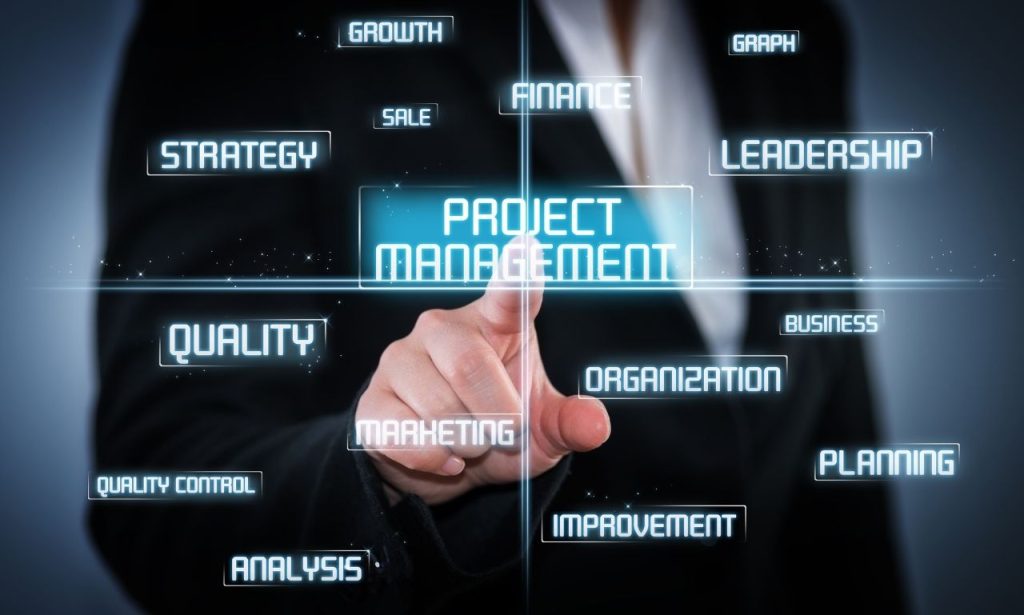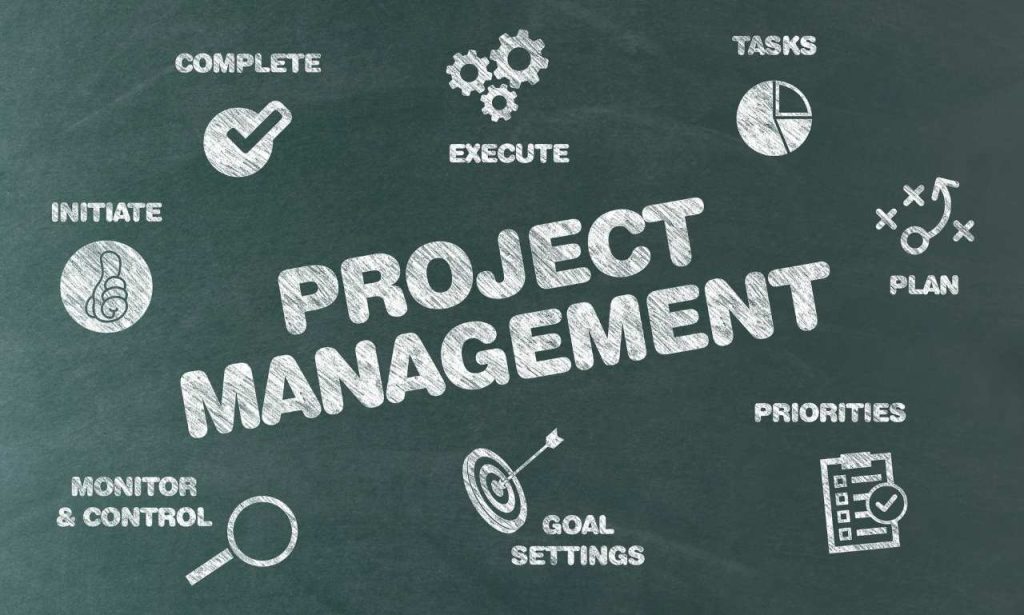The landscape of project management leadership has transformed drastically in recent years. New technologies continue to reshape our approach to daily tasks and long-term planning. AI stands out as a true game-changer for project leaders across industries. Thanks to these tools, I’ve watched teams tackle complex problems with remarkable efficiency. Project managers now focus on strategy instead of drowning in administrative minutiae. This shift creates more meaningful work and delivers better outcomes across organizations.
I started using AI in my project management practice about five years ago. The results continue to amaze both me and my clients. AI doesn’t take over human leadership – it unexpectedly makes it stronger. It provides backup exactly where we need it and lets us apply our uniquely human abilities. This combination creates a powerful approach to today’s project management challenges.
AI’s Role In Leadership

AI works as a partner, not a replacement, in leadership positions. It excels at analyzing data, spotting patterns, and handling repetitive administrative work. These capabilities let leaders concentrate on the human elements of leadership. Strategy creation, team motivation, and stakeholder relationships remain firmly in human hands.
Today’s most effective project managers use AI to extend their existing abilities. They use AI-powered tools to boost their project management skills. This partnership approach delivers impressive results for both projects and teams. Leadership still demands human judgment, empathy, and ethical decisions that AI simply cannot provide.
AI processes massive amounts of information quickly and accurately. It spots trends that might take people days or weeks to find. With this support, project managers make better decisions based on solid information. They can address emerging issues before they become serious problems.
Three Ways AI Can Make Us Better Leaders
AI strengthens leadership capabilities in several crucial areas. It provides support exactly where humans typically struggle or waste time. Here are three specific ways AI creates better project leaders today.
Sharpening And Reinforcing Your Vision
Here, AI helps leaders clarify and share their vision more effectively. Project vision often gets buried under daily tasks and urgent issues. AI tools continuously track alignment between activities and strategic goals. They alert leaders when decisions start drifting from the original project aims.
I once worked with a drug company developing new clinical trials. Their AI flagged when resources didn’t match stated priorities. This early warning allowed the leadership team to realign before problems grew. The project kept pursuing its strategic objectives from start to finish during development.
AI functions as a tool to deliver organizational vision to teams whose members have distinct communication methods. The system examines communication methods to make recommendations about clarity improvement. Efficient communication helps teams understand each other to achieve common objectives. The project success rate improves significantly through this alignment process.
Team members gain a better understanding of abstract concepts because new tools create visual representations. Visual communication tools simplify the understanding of complicated strategic goals by employee teams. The clarity of vision for everyone leads to daily decisions that support project objectives.
Surfacing Advanced Insights
AI brings powerful analytical capabilities to project leadership. Traditional reports usually tell us what happened but not why or what might happen next. AI changes this by offering predictive insights based on current and past project data.
Today’s AI tools analyze vast amounts of data from previous projects across an organization. They identify patterns that led to success or failure in similar projects. Project managers apply these insights to current work to avoid repeating mistakes. This approach significantly improves project outcomes over time.
Last year, I implemented an AI analytics system for a major construction company. The system spotted weather pattern impacts on project schedules that nobody had noticed. This insight allowed them to adjust timelines proactively with minimal disruption. Their on-time completion rate jumped by 22% in just six months.
AI excels at identifying potential bottlenecks before they affect project progress. It can model different scenarios and suggest optimal resource strategies. Leaders test various approaches virtually before committing actual resources. This capability reduces risk and dramatically improves resource efficiency.
AI insights often challenge human assumptions about project management and reveal unexpected solutions people might never consider. Good leaders remain open to these AI-driven insights while applying human judgment. The combination produces better results than either approach alone.
Keeping You Present
AI helps leaders stay focused on what truly matters. Project managers often get buried in administrative work and endless meetings. AI tools handle routine tasks so leaders can remain present with their teams. This presence is crucial for effective leadership and team development.
AI assistants manage scheduling, documentation, and standard reporting automatically. Leaders acquire additional time to spend directly with their team members. Team performance and job satisfaction show a strong dependence on personal relationships between leaders and their employees. Leaders now enjoy more freedom to focus on essential team-related activities.
AI technology enables leaders to maintain a presence through its meeting management capabilities. Tools provide automatic recording and transcription, along with meeting summary generation. The system uses its functions to detect important tasks, which are distributed to team members. Through AI assistance, leaders gain the ability to participate fully in discussions without needing to rush with note-taking. The method enhances both meeting quality and follow-through performance.
I became aware of a project manager’s implementation of AI meeting assistance in recent times. Team members expressed better understanding and perception of their voices during their meetings. The manager could focus entirely on the discussion instead of documentation. Team engagement improved noticeably, leading to better overall collaboration.
How Will AI Affect Project Management?

AI is transforming multiple aspects of project management beyond leadership. It impacts planning, execution, monitoring, and closing processes. Project managers increasingly rely on AI-powered tools throughout the project lifecycle.
Resource allocation benefits tremendously from AI optimization capabilities. Systems analyze resource availability, skill requirements, and project timelines simultaneously. They recommend optimal allocation strategies that human managers might miss. This optimization leads to better resource use and project efficiency.
AI also transforms project communication by analyzing patterns across teams. It identifies gaps or misunderstandings before they cause problems. Some systems even suggest communication improvements based on team dynamics. Effective communication remains essential for project success in any industry.
With AI assistance, project documentation has become more accurate and thorough. Systems generate reports, update documentation, and maintain project records automatically. This improvement ensures better knowledge transfer and organizational learning and reduces the administrative burden on project team members.
Risk Management
AI significantly enhances risk identification and mitigation strategies. Traditional risk management often misses subtle warning signs of developing problems. AI systems continuously monitor project metrics for early risk indicators. They alert managers before minor issues become major obstacles.
Predictive models analyze historical project data to identify likely risk factors. They assign probability scores to different risk categories based on project characteristics. Project managers can focus mitigation efforts on the most likely and impactful risks. This targeted approach improves overall risk management effectiveness.
I recently helped implement a risk management AI for a financial services client. The system identified regulatory compliance risks that traditional methods had missed entirely. Early detection allowed the team to adjust processes before violations occurred. The company avoided potential fines and reputation damage as a result.
AI excels at scenario planning for different risk responses. It simulates various mitigation strategies and their likely outcomes. Based on these simulations, leaders select the most effective approach. This capability dramatically improves risk response planning and execution.
Continuous monitoring represents another AI advantage in risk management. Systems track project metrics 24/7 and immediately flag concerning trends. Human managers receive alerts only when intervention becomes necessary. This prevents risk management fatigue and ensures appropriate attention to emerging issues.
Project Estimations
Modern technology significantly enhances project estimation accuracy. Project estimates primarily depend on expert opinions and previous project data through conventional techniques. Technological advancements use thousands of industry-related project insights based on data-driven analysis. The system generates more precise predictions concerning time frames, resource allocation, and total costs when used together.
Student learning programs evaluate previous project records to reveal key estimation trends. The system identifies the project components that tend to exceed their cost or timeline targets. Project managers add proper time cushions to areas that demonstrate high-risk potential. This approach’s specific focus leads to better overall estimation precision.
The analysis conducted by AI systems identifies elements that humans typically disregard when making their estimates. The system considers both team member characteristics alongside their expertise and individual personality characteristics. The elements that affect productivity levels are not typically included in conventional budgeting estimates. Project planning becomes more accurate when teams include these factors.
My team and I were helping a software development team endure persistent estimation issues. The AI estimation system included team experience levels in its calculation process. During the first quarter, the number of accurate predictions increased by more than 30%. The team started achieving consistent deadline completion.
Project estimation benefits from continuous improvement, which is an advantage of AI. Each completed project helps systems generate better predictions for future estimates. The system learns specific organizational and team patterns during its processing, which leads to enhanced estimation accuracy as time progresses.
Will Artificial Intelligence Improve Project Management?

Project management practices show strong indications that AI technology will continue to enhance their development. Organizations that use AI tools for their operations achieve higher project success rates. AI has produced significant enhancements that affect projects across the construction and software development sectors.
The application of data-based choices is among the most important areas where AI needs to be developed in project management. Leaders make their decisions through extensive analysis instead of drawing conclusions from individual personal experiences. This process minimizes human prejudices while enhancing decision quality, which leads to superior project achievements.
AI implementation that suits the team delivers better experiences to members. Systems execute monotonous yet tedious responsibilities that many people dislike performing. The team concentrates on purposeful assignments that require their professional abilities. The transition leads to enhanced worker satisfaction in most cases.
Conclusion
AI technology provides substantial potential for leaders to develop their project leadership abilities. It enables better organizational vision and provides essential information to maintain team presence. These technological features directly resolve typical leadership issues that project managers face. The speed of technological progress results in new opportunities emerging yearly.
However, AI complements rather than replaces human leadership. The technology executes regular operations and advanced computations that help humans make decisions. The best strategy combines artificial intelligence capabilities alongside distinct human abilities. The strategic union produces better project results than either entity could independently.
Project leaders should begin searching for suitable AI tools that match their operational needs. Introduce AI by implementing specific applications that resolve known problems. Build your AI initiatives progressively after gaining expertise in AI implementation. The path to success includes obstacles, but the advantages from this work justify the difficulties.
Project leaders of tomorrow will succeed by using their human intelligence to guide AI functionality. The combination mastered by skilled project leaders produces regular achievement of exceptional project results coupled with more interactive working spaces for their team members. Project management will benefit from the direction you set toward this future vision.
Also Read: 10 AI Dangers and Risks and How to Manage Them
FAQs
Popular options include Atlassian Intelligence, Project Insight, and Project Planner for different management needs.
No, AI complements human skills rather than replacing the judgment, empathy, and creativity that good managers provide.
Organizations typically report 15-30% improvements in on-time and on-budget project completion after implementing AI.
Start with a specific pain point like meeting management or estimation that AI can address effectively.


